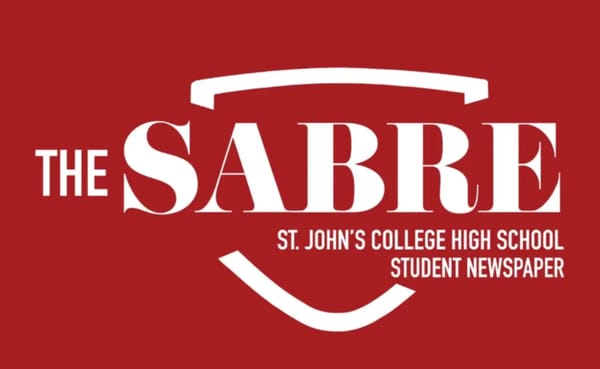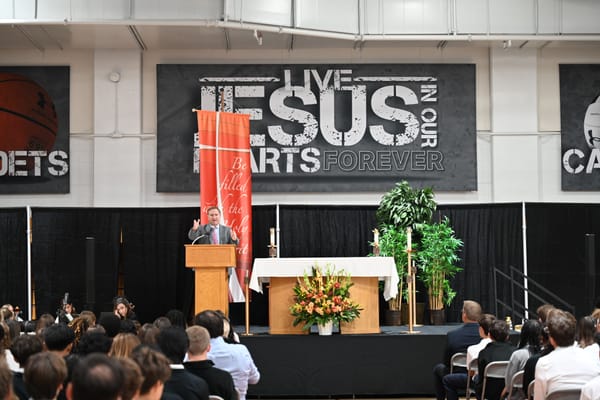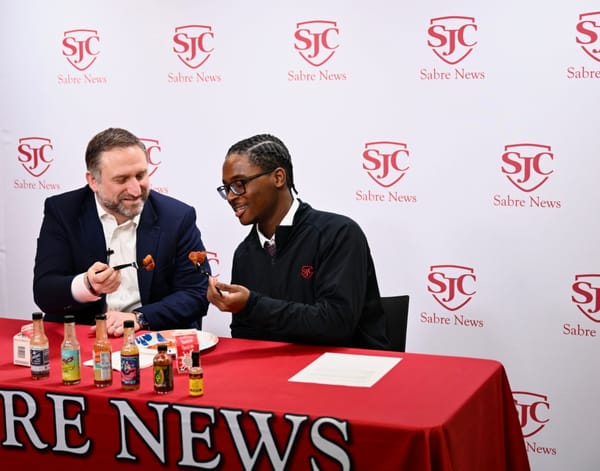Junior Cadets Speak with Descendants of the GU272 Sale

This past Friday, on April 26th, junior students at St. John’s had a unique opportunity to hear from Julie Hawkins Ennis and Lynn Nehemiah, two descendants of enslaved people who were a part of the GU272 sale at Georgetown. The GU272 sale was the selling of hundreds of enslaved men, women, and children to sugar plantations in Louisiana and was conducted by the Jesuit priests of Georgetown in 1838 as a (successful) attempt to generate sufficient funds to keep the university from facing looming bankruptcy.
In recent years, light has been shed on the details of this sale through the “Georgetown Project” https://www.georgetown.edu/slavery/ , which is working to uncover who was involved in the sale, what the repercussions are today, as well as how to repay the moral and monetary debts of the university to those afflicted by the university’s past faults. Thus far, Georgetown has re-named buildings, created scholarships, and educated the public of the university’s complicated history and their ongoing efforts to make up for it. These efforts are helping to re-align the university with Lasallian values of respect for the individual and service and social justice that were questioned by many after it was revealed that Lasallian priests were the ones who conducted the sale. An additional key component of these reparation efforts has been Georgetown’s role in connecting with the descendants of the GU272 sale.
With the juniors, Ennis and Nehemiah discussed in depth what discovering this connection to the GU272 sale meant for them. “At the Catholic school that [Ennis] went to, not once did [she] hear about the Jesuits enslaving [them]” (Georgetown). Discovering her connection to the sale challenged her faith, but it also ignited in Ennis (and Nehemiah) a stronger drive to fight for social justice in todays world. Ennis and Nehemiah do not want people to shy away from history just because it can be “uncomfortable”. Instead, they encouraged students to question how much Americans know about the role slavery plays in the current state of the country, compared to how much has been buried by perpetrators or ignored by people scared to face our country’s wrongdoings. The speakers worked to inspire the juniors to confront the past of America and use it to make the future better.




